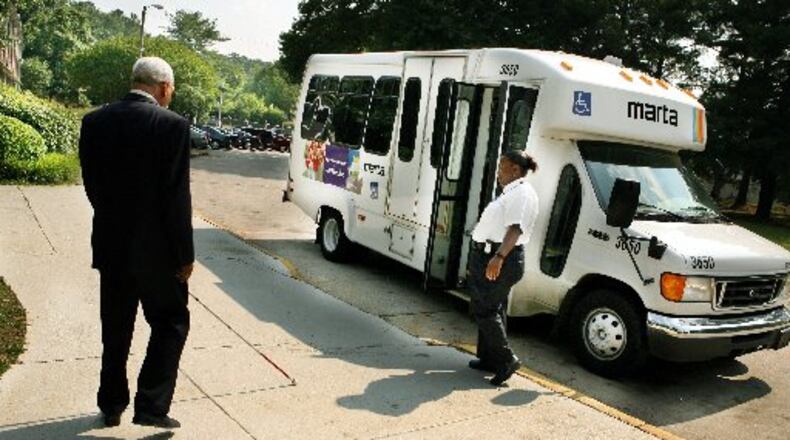5:20 p.m. update: MARTA spokeswoman Stephany Fisher said the agency was able to provide more than half of its scheduled paratransit trips Wednesday.
A spokesman for MV Transportation said the company was not aware of any safety concerns with MARTA paratransit vehicles. He said if any concerns are raised, vehicles are pulled from the road and inspected. He said they are not returned to the road until they are confirmed to be safe.
Original post: MARTA paratransit drivers staged a one-day strike Wednesday to protest what they say are unfair labor practices and safety concerns with the agency's service for the disabled and elderly.
MARTA spokeswoman Stephany Fisher said the agency is working with the private contractor that operates the transit service to maintain the service today. But some service may be disrupted. She said priority will be given to customers who use paratransit to get to medical appointments and jobs.
MARTA outsourced its paratransit service to MV Transportation in 2016, citing the need to save money, increase efficiency and improve on-time performance rates. Since then, the Amalgamated Transit Union, which represents paratransit drivers, has fought to overturn the decision.
Last year an arbitration panel overturned the agency's decision to outsource paratransit service, saying it violated the terms of the drivers' labor contract. But last month a Fulton County judge overruled the arbitration panel.
Stanley Smalls, an ATU executive board member, said the union also is concerned about the safety of paratransit buses. He said MARTA’s fleet is aging, and exhaust fumes sometimes sicken passengers and drivers.
“We’ve got operators driving until they get dizzy,” Smalls said. “That’s not safe.”
Fisher said MARTA is “committed to providing safe, reliable transportation to its Mobility patrons —many of whom are among our most vulnerable riders, including senior citizens and people living with disabilities.”
About the Author




